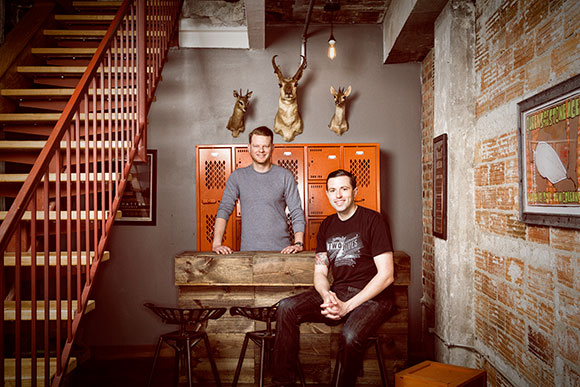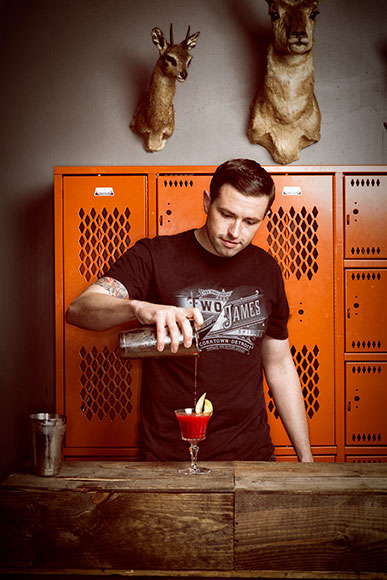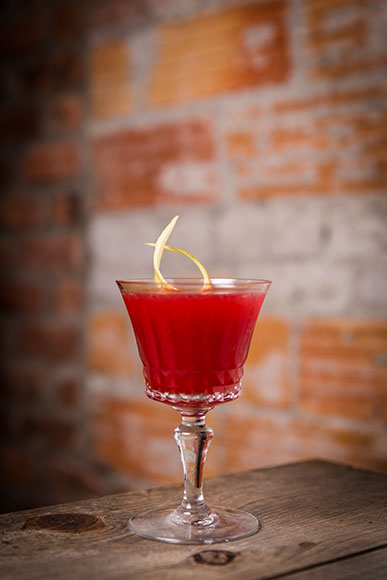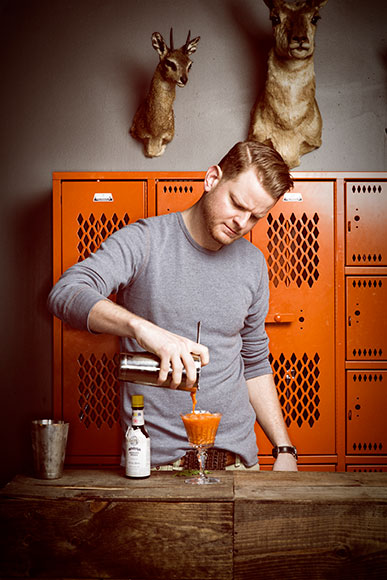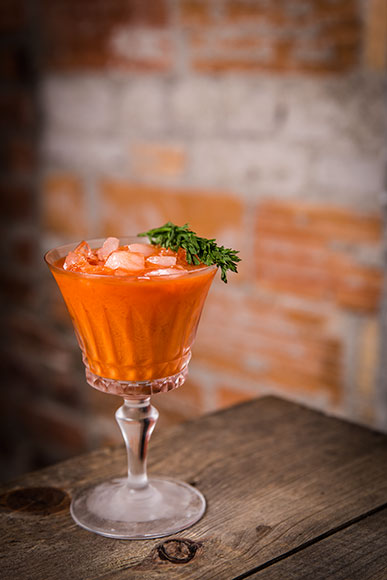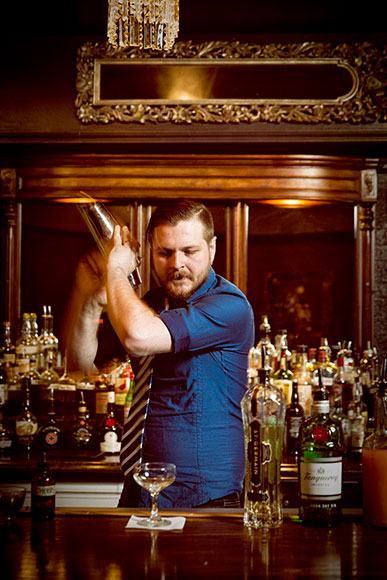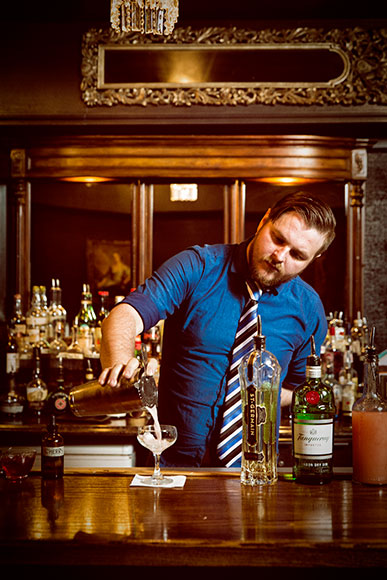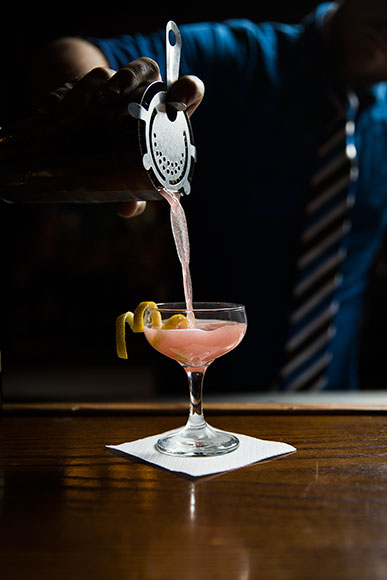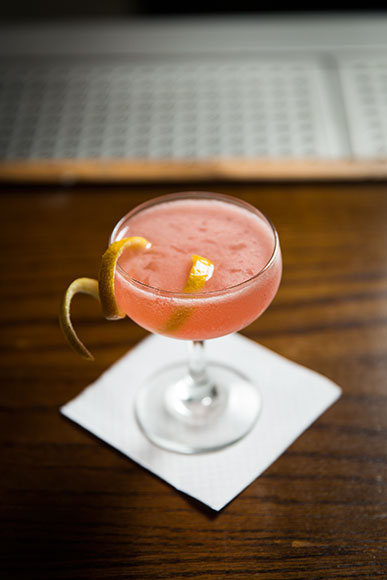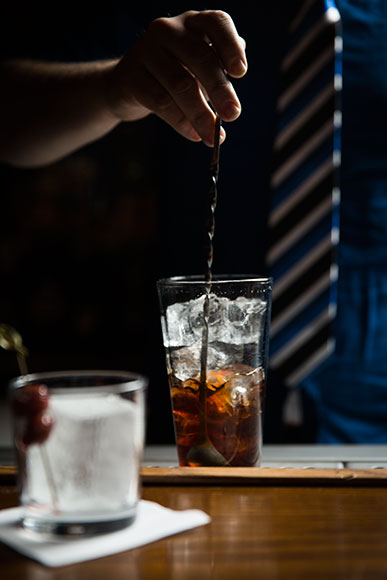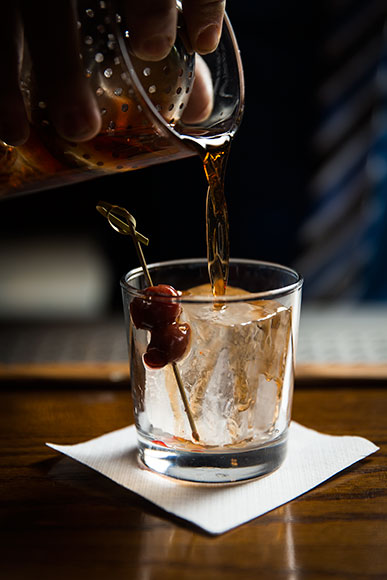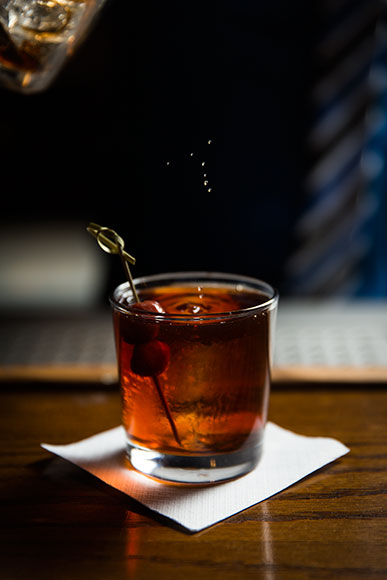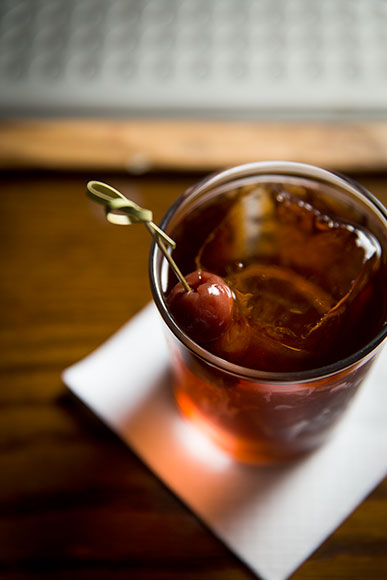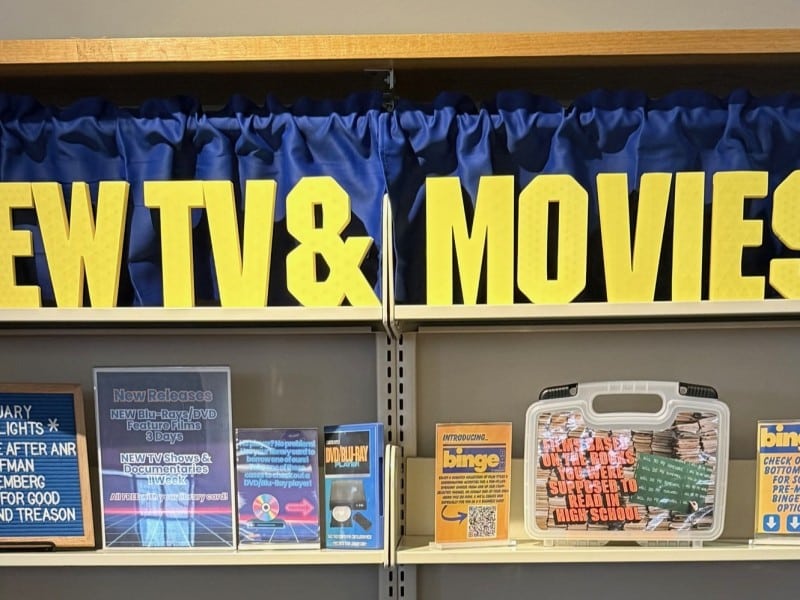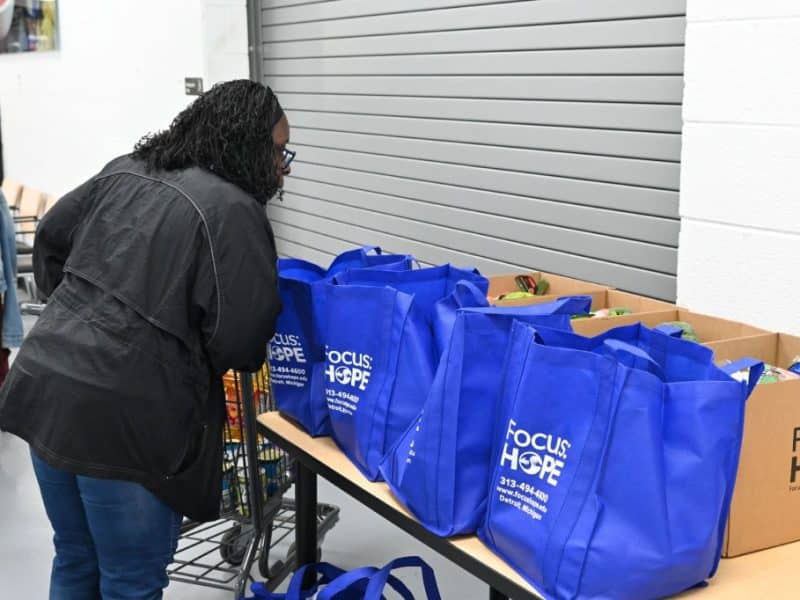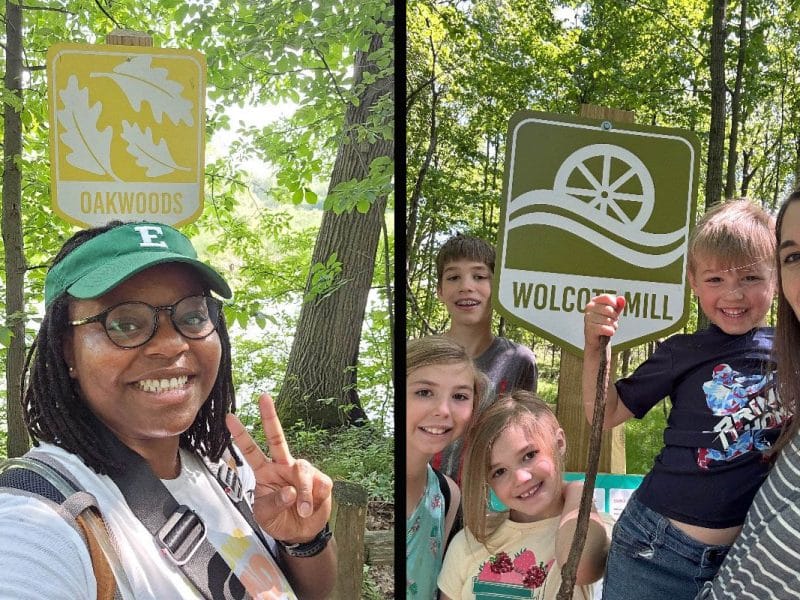The Rise of Metro Detroit’s Mixologists
Five years ago metro Detroit was barely a blip on the craft cocktail radar. Today it's considered one of the hottest regions for mixology, boasting bartenders and a scene that rival any in the U.S. Metromode's Nicole Rupersburg charts our cocktail culture's recent evolution.
Maybe it’s because of metro Detroit’s automotive history, but whenever a new trend hits we have a tendency to take it from zero to 60 with ear-splitting speed. We did it with food trucks. We did it with pop-ups. We did it with coffee and craft beer and artisan spirits. And we did it with craft cocktails.
Talking about the craft cocktail scene in metro Detroit seems a bit obvious – it’s not exactly news that this is a thing that exists in spades now. But back during Detroit’s Dark Ages – BDG (Before Dan Gilbert), aka 2008 – no one was talking about it. This was before The Oakland. Before Sugar House. Before Valentine Distillery. Before Roast and the Raven’s Club and the Last Word and the Sardine Room and Vellum and Grange Kitchen + Bar and Imperial and Public House and Vinsetta Garage and Two James Distillery. None of these places – not a single one of them – existed yet.
So what did the drinking scene look like in those early oughts? Way different. “Infusion” meant a vat of Stoli Doli on display at the end of the bar.
And then Michael Symon’s Roast opened in the Westin Book Cadillac in the fall of 2008, and a fresh-faced bartender named Travis Fourmont, who had just moved from Portland where he was so entrenched in the craft cocktail scene he didn’t even realize it was unique (and hardly ubiquitous), started making cocktails the way he knew how to make cocktails. And everything changed.
“I came to Roast with bitters in hand and I was like, ‘What’s going on here? You guys don’t have Peychaud’s Bitters?'” laughs Fourmont. So he started making cocktails with bitters and making infusions that weren’t pineapple-soaked vodka. He started barrel-aging cocktails. And he gained a following. Soon Roast was known for their cocktails, and the bar became the central gathering place for cocktail and liquor nerds.
That isn’t to say that craft cocktails in metro Detroit didn’t exist prior to Roast – a long long time ago in a Detroit far away Lola Gegovic was doing her thing over at Cliff Bell’s, and Sandy Levine, owner of The Oakland in Ferndale, started a craft cocktail program at Atlas Global Bistro. But Detroiters weren’t quite ready for what would become a national trend.
“I think it was a lot to do with timing,” says Fourmont of the popularity of Roast’s cocktail program. Local cocktail pioneers were among his regulars, like Sugar House owner Dave Kwiatkowski before his renowned Corktown bar opened. “It only takes a handful of legitimate bartenders that are really passionate and excited about it, and then it just spreads. That gap in Portland was the exact same thing over [a five-year period].”
With the rise of any major trend, someone has to be the first to carve out the path for others to follow. While Fourmont wasn’t the first person in metro Detroit to mix what we consider “craft cocktails” – everything from old-timey classics to fancy new concoctions – he was the first to start competing in major competitions that brought national attention to Detroit’s nascent cocktail scene.
In 2012 Fourmont placed in the top 10 and won the audience choice award at the massive annual Bombay Sapphire competition, which was a huge turning point both for himself and for Detroit’s cocktail credibility on an international scale.
“I won the local market then went on to Vegas to compete against 52 other markets from all over North America. It was so huge that even though I didn’t win the national competition, I got in the top 10 out of thousands [of competitors]. That was the first time I realized ‘I’m here and I deserve to be.'”
Because of the major industry names involved with these competitions, he looked at them as a kind of job interview, and after Bombay he started entering everything. He won smaller competitions, including one for Bacardi, and was named “best bartender” by Hour Detroit and Metro Times over 2012 and 2013. Then, in 2013, Fourmont took home the top honors at the Woodford Reserve “Master of the Manhattan” competition, beating out every other bartender in the country in Manhattan (on his birthday, no less).
On the flight home, Fourmont happened to sit next to a representative from Detroit-based Great Lakes Wine & Spirits, who mentioned they were creating a corporate mixology position modeled after the corporate mixology program at Southern Wine & Spirits, the largest wine and spirits distributor in the country. The position was, in effect, created for him, and now Fourmont’s job is to support the company’s sales team and their clients, which can mean anything from assisting with efficiencies behind the bar to creating a craft cocktail menu and training staff on the products. At this point you would be hard-pressed to find a bar or restaurant in metro Detroit that he hasn’t touched in some way.
The Oakland’s Shane McGrath says, “Now with Travis, who is basically going around consulting with these products and giving step-by-step tutorials on how to make drinks properly, you can walk into any bar and if it’s not a dive bar, they have a cocktail list, even if it’s just something simple like a Gin-Gin Mule or Old Fashioned.”
Fourmont’s success inspired others to follow suit. “Everyone is stepping up and competing because they saw the opportunity there and they’re doing well,” says Fourmont. “I was a pretty good bartender in Portland, but just one of many. To do a national competition and win and be from Detroit? That’s huge.”
And we’ve been sweeping up in competitions since then. In 2013, Yani Frye of Sugar House won the U.S. Finals of the Angostura Bitters Cocktail Challenge. Later this month four area bartenders will compete in the Midwest Regional Finals for Diageo ‘WORLD CLASS, the world’s largest mixology competition. And while Fourmont’s face graced the pages of GQ and Esquire after his respective Bombay and Woodford wins, Detroit’s first true startender was McGrath, known around town as “Shane Bang.”
McGrath started out as a regular at The Oakland in Ferndale who loved the place so much he got a job there. He started out at the bottom but, unbeknownst to owner Levine at the time, was learning the craft of craft cocktails in his free time from the Oakland’s bartenders Jacqueline Foucha and Adrianne Martin. When a bartending spot opened, McGrath surprised Levine by knowing every single drink on the menu – a fortuitous thing for all involved, since McGrath would go on to compete in the national “Most Imaginative Bartender in America” competition hosted by Bombay Sapphire in Las Vegas in 2013 and was one of four competitors (out of 51) highlighted by GQ in a YouTube video series called America’s Bartenders documenting the contest.
“Bombay Sapphire was the big one that set the ball in motion,” says McGrath. “All of a sudden my face was everywhere! I was on YouTube watching videos of cats or something and a commercial came up and it was me. I was like, “What the f-uck, they’re trying to sell me, ME!’ From there word just kind of spread and people started coming to the bar asking for me and the [award-winning] Gin Tiki. It raised awareness of me and of The Oakland in general.”
McGrath has witnessed first-hand how the craft cocktail culture has evolved locally, from the early days of the Oakland where drinks would take 15-20 minutes to now when they have perfected the balance of high volume and high quality.
He also says consumers are also more educated and bar owners are realizing that they’re drinking differently now. “It happened with food first, and that kind of idea is now transitioning into bars.”
Local cocktail culture has become so popular that it is now the basis of numerous events hosted by Bailout Productions, an event production company started by Fourmont and his former Roast cohort Joe Robinson. Bailout has independently produced several small pop-up events and provided the cocktails for other pop-ups like Guns + Butter, and has also co-produced larger events like Whiskey Business and, most recently, Cocktail Culture, which brought together some of the best bartenders representing the top bars and restaurants in metro Detroit and about 1,200 cocktail fans for an evening of wildly creative cocktails and community.
Robinson credits Fourmont for getting him into mixology when the two worked together at Roast. He jokes that while he didn’t really “get it” at first, one day it clicked, and now the student just might become the teacher when Antietam, the Eastern Market-area restaurant formerly known as Frontera, opens this summer. Robinson will have more sophisticated equipment than any other bar in Michigan and will make cocktails with ingredients like banana juice and rhubarb juice, which are things you don’t ever see on a cocktail menu because they require a centrifuge to extract. Antietam will take metro Detroit cocktail culture to the next level.
“When you do the same thing every day you want to spice it up a bit,” says Robinson. “I always want to learn and try new things. I want to give people a really good product and something they haven’t tasted before.”
He also doesn’t want to get pigeonholed into the perception of pretentiousness that cast a shadow over the craft cocktail scene early on. “I think it’s all about the delivery of it. We’re not really going to push it in people’s faces or charge $15 per drink. The hospitality of [bartending] has been kind of lost but that’s something the whole service industry will go back to.”
That sense of inclusivity is really part of the next level of craft cocktail culture, as reflected in the recently-formed Greater Detroit chapter of the United States Bartenders’ Guild.
In February 2013, Robyn Cleveland of Ann Arbor’s The Raven’s Club succeeded in launching the Detroit chapter of the USBG, the highly-respected professional association of American bartenders and the U.S. component of the International Bartenders’ Association. Realizing that Detroit’s lack of USBG presence put a severe limitation on Detroit-area bartenders’ ability to participate in national bartending competitions and access to educational and professional resources, he took it upon himself to do the necessary work to form a local chapter and on February 13, 2013, Greater Detroit officially became the 37th chapter of the USBG. Cleveland is the chapter’s president.
“Anybody can join, not just bartenders,” says Cleveland. “We welcome anyone with open arms, even if it’s someone who works in a sports bar, as long as they’re serious about their job. We’re looking for people who are really devoted.”
The Guild offers group insurance and a three-tiered educational program that designates “spirits professional,” “advanced bartender,” and master mixologist.”
Guild culture is one of sharing information and supporting fellow bartenders. “The biggest key is not to keep your knowledge to yourself. Share it with other people; share it with the next generation. The more you share there’s better drinks for everyone to enjoy. A lot of bartenders want to keep their secrets to themselves and that’s the worst possible thing they can do.”
The Guild brings with it a level of legitimacy that was missing in metro Detroit and gains Detroit-area bartenders entrance to international competitions they were previously unable to access. “The level of competition the USBG is engaged in is the highest in the world,” says Cleveland.
The Guild emphasizes knowledge, information, positivity, support, and inclusivity. That goes as much for the bartenders as it does for their customers. “Being a good bartender at the end of the day is about service,” says Cleveland. “It’s about making a comfortable environment for your customer. That is THE most important thing. Don’t judge someone if they don’t ‘get’ it – that’s a big mission of USBG. Not everybody wants to come in and get cocktail with fernet in it.”
Metro Detroit’s craft cocktail culture has proved itself to be more than just another fleeting foodie fad, and gained an impressive measure of respectability. It will continue to grow and evolve, but with the biggest names in the business touting the importance of knowledge-sharing and creating a supportive and welcoming environment for bartenders and customers alike, all the while piling up international awards because they’re among the best in the business, metro Detroit’s future as the New Orleans of the North is looking increasingly promising.
As Levine says, “I think our city has started getting a lot of national recognition for the culture of its drinking climate rather than the drinks themselves.”
We’ll raise a glass to that. Or six.
Readers might know Nicole Rupersburg primarily from her former blog, Eat It Detroit. She lives in Las Vegas now, where she is Deputy Editor of VEGAS magazine, but she still enjoys lending a bit of Detroit culinary anthropology to Metromode.
http://www.davelewinski.comAll Photos by David Lewinski Photography

